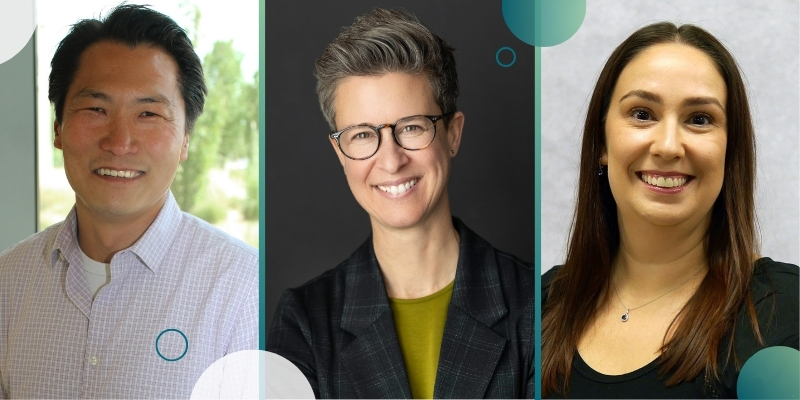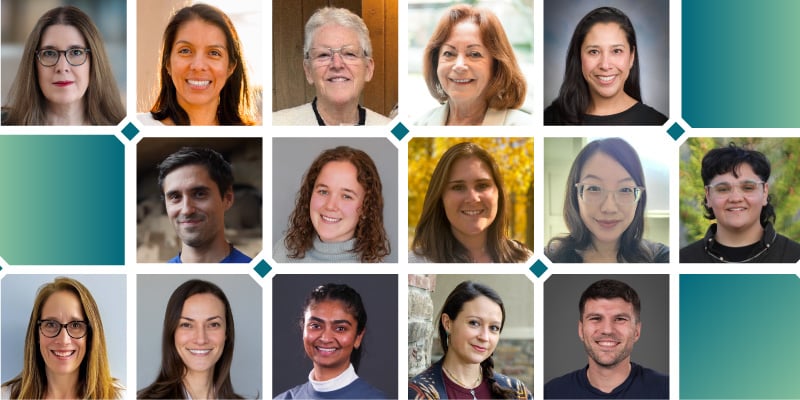Raeven Clockston’s commitment to public health didn’t begin with reading books or sitting in classrooms. It started with her youthful observations of life in and around her Denver community.
“I was interested in public health before I realized that’s what I was interested in,” Clockston said. “Part of that stemmed from seeing family members and friends who I cared about experience a lot of health complications, and later on seeing inequities that existed across zip codes and different social identities.”
Clockston moved to Fort Collins in 2015 and attended Colorado State University (CSU), where she earned a Bachelor of Science degree in Nutrition and Food Science in 2018. She then thought about how she could use her skills to promote healthy behaviors for people most at risk for chronic diseases like Type 2 diabetes, hypertension, and cardiovascular disease.
“My plan for that degree was to work with communities on preventive healthcare in the form of exercise and nutrition,” Clockston said. She saw that work as especially important for lower-income people generally, and communities of color specifically.
But Clockston turned instead to public health as the best route for addressing the social inequities—lack of access to nutritious food being just one of many—that drive health disparities. She received her Master of Public Health degree in epidemiology this year from the Colorado School of Public Health at CSU.
The school also honored her this spring with its Outstanding Contribution by a Student Award, representing the CSU campus. The award recognizes Clockston’s commitment to combating racism and promoting equity, diversity, and inclusion at CSU. In January 2021, she began work as one of the first student coordinators of anti-racism, diversity, equity, and inclusion for ColoradoSPH at CSU.
In this role, Clockston helped develop policies that support students of color. She also worked to ensure that ColoradoSPH students are ready to promote public health in all communities.
“We want to help ensure that students in this program have the tools and feel knowledgeable to work with people from different backgrounds and promote equity in a way that is anti-oppressive,” Clockston said.
She is now even better situated to help the school meet those and other objectives. In June, Clockston began work as the public health equity and practice coordinator in the Office of Equity, Diversity and Inclusion and the Center for Public Health Practice at ColoradoSPH. In those roles, she works closely with Associate Dean for Equity, Diversity & Inclusion Dr. Cerise Hunt and Associate Dean for Public Health Practice Dr. Lisa Miller. The broad goal: find concrete ways to implement the school’s five-year strategic plan, one major aim of which is “to ensure that equity, diversity, and inclusion are central to the school’s academics, research, practice, and service.”
Clockston’s efforts to help the school meet that target will build on a town hall hosted last July 2020 by ColoradoSPH Dean Dr. Jon Samet. At that gathering of more than 170 participants, Samet presented the school’s “Plan for Dismantling Structural Racism and Advancing Inclusive Excellence.” A follow-up town hall was held on July 28, 2021. The event was led by Samet, Hunt, Clockston, and representatives from the school’s student body, faculty, and staff who are all contributing to and leading equity, diversity, and inclusion efforts across the school and its three campuses.
“It was an opportunity for students, staff and faculty to ask questions about what the school has been doing to achieve that plan,” Clockston said.
One tangible step, she noted, is development of a summer work packet that focuses students newly arriving to ColoradoSPH at CSU on the importance of equity, diversity, and inclusion.
“We want incoming students to know that the school values health equity from the very beginning,” Clockston said.
Students were slated to receive the packets at the end of July and work on modules through part of the fall semester, she added. The resources aim to help students “become engaged and be more informed in different areas of equity,” Clockston said.
Other projects include preparing students for their practicum with training to identify structural racism and oppression when they do community work; asking school applicants to respond to a question about the importance of health equity and their work in that field; and a new two-credit course that will launch in the fall on anti-oppressive research and practice in public health.
For Clockston, these and other initiatives are small steps along the road to achieving a more equitable society. The effort will require that students be prepared to recognize the challenges faced by underserved communities and address them with “cultural humility,” she added.
“There are always more opportunities to educate ourselves and more ways to listen to our communities,” Clockston said.
She noted that during her master’s work, she focused on social epidemiology, the study of how factors like discrimination and prejudice influence health outcomes.
“A lot of health is really a result of our environment and communities,” Clockston said. “It’s important to understand that much of our health is [determined] outside of our individual actions.”
She looks forward to applying those insights to work in the community. But whatever the task, Clockston has identified her driving force, personally and professionally.
“I will base everything I do in the future through an equity lens,” she said. “Whatever I do in the long term will be in pursuit of advancing equity and community health.”






.jpg)